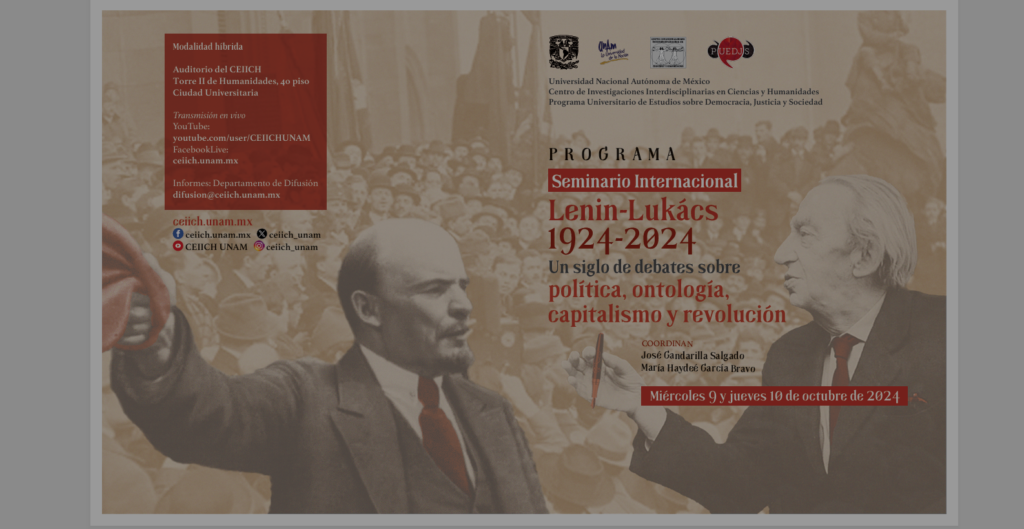
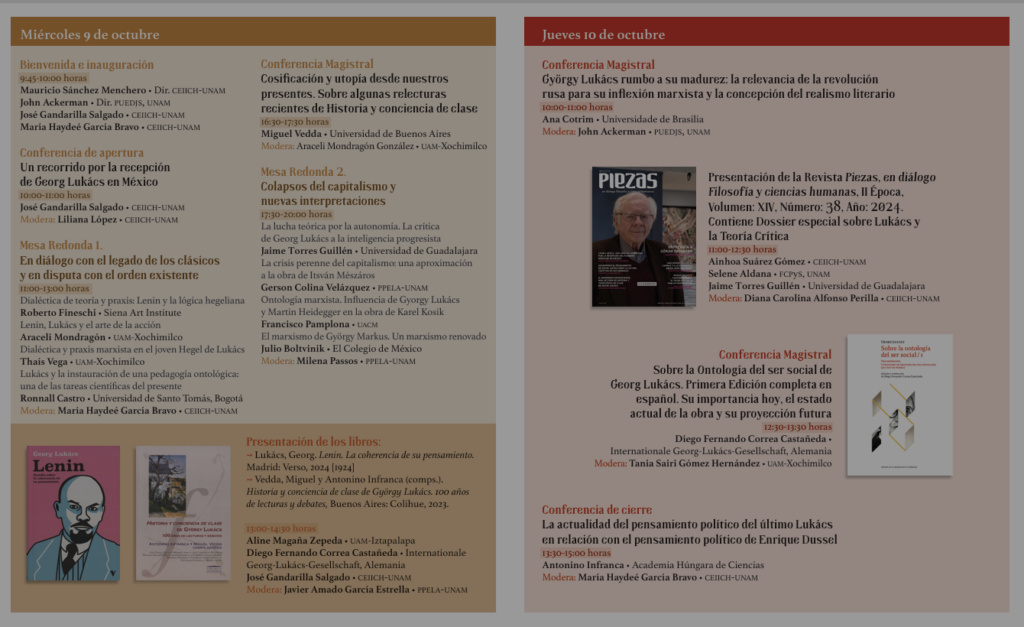
Internationale Georg-Lukács-Gesellschaft e. V.


Die ersten vier Essays sind jetzt abrufbar (aus der Zeitschrift: Open Philosophy/ de Gruyter):Lukács and the Critical Legacy of Classical German Philosophy, edited by Rüdiger Dannemann (International Georg-Lukács-Society) and Gregor Schäfer (University of Basel)
Special Issue:https://www.degruyter.com/journal/key/opphil/7/1/html
Michael J. Thompson: German Idealism, Marxism, and Lukács’ Concept of Dialectical Ontology
https://doi.org/10.1515/opphil-2024-0020
Mateus Soares de Souza: The Marxist Method as the Foundation ofSocial Criticism – Lukács’ Perspective
https://doi.org/10.1515/opphil-2024-0019
Spyros Potamias: The Hegelian Master–Slave Dialectic inHistory and Class Consciousness
https://doi.org/10.1515/opphil-2024-0012
Isabelle Bishop: Everyday Hegemony: Reification, theSupermarket, and the Nuclear Family
https://doi.org/10.1515/opphil-2024-0015
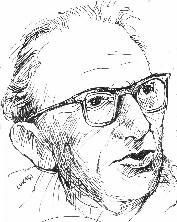
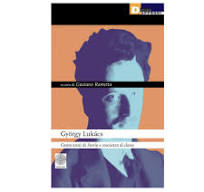
György Lukács è un clamoroso esempio di rimozione, agita contro una delle figure chiave del pensiero del Novecento e del marxismo. I cento anni dall’uscita del suo capolavoro Storia
e coscienza di classe sono stati l’occasione per una rilettura, nella convinzione che costituisca uno dei pochi autentici classici della filosofia contemporanea. Il libro affronta il testo da una
molteplicità di punti di vista, mostrando la ricchezza e la varietà dei problemi affrontati dal giovane Lukács, sottolineandone l’audacia e la novità. A una collocazione storico-filosofica
dell’opera, particolarmente in rapporto a Hegel e al neo-kantismo, si accompagnano analisi comparative con altri classici della filosofia e del marxismo novecentesco (come Korsch,
Bloch e Gramsci), il rapporto con la sociologia e il diritto, nel contesto dello straordinario significato storico-politico dell’opera.
Gli autori del volume sono alcuni tra i massimi esperti del pensiero di Lukács a livello mondiale: Giorgio Cesarale, Rüdiger Dannemann, Patrick Eiden-Offe, Mauro Farnesi Camellone, Giacomo Gambaro, Bruno Karsenti, Konstantinos Kavoulakos, Gaetano Rametta, Falko Schmieder.
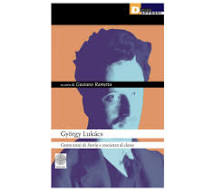
Vor 100 Jahren erschien Georg Lukács‘ Lenin-Studie im Malik Verlag
Rüdiger Dannemann
Lenin bei Georg Lukács: Dialektiker, Revolutionär, »Volkstribun«
Georg Lukács las Lenin als politischen Visionär und Inspirationsquelle einer Erneuerung des Marxismus. Ein Vorbild also?

nd vom 28.06.2024/
Bloch und Lukács im heutigen Kontext
Öffentliche Tagung
ERNST-BLOCH-ASSOZIATIONundINTERNATIONALE GEORG-LUKÁCS-GESELLSCHAFT
4. bis 6. Oktober 2024Bochum – KoFabrik – Stühmeyerstraße
In Kooperation mit Rosa Luxemburg Stiftung Nordrhein-Westfalen/ Mit Unterstützung von Verein zur Förderung der Philosophie Ernst Blochs e. V./ Rosa-Luxemburg-Club Dortmund/ Leo-Kofler-Gesellschaft
Programm:
Freitag
17:00 Doris Zeilinger, Rüdiger Dannemann
Begrüßung
17:15 Peter Zudeick, Hans-Ernst Schiller
Vorwärts immer – rückwärts nimmer Ein kurzer Ritt durch die Geschichte der Fortschrittsbegriffe – Entfremdete Natur und gesellschaftlicher Fortschritt
Zur naturwissenschaftlichen Revolution der Neuzeit im sozialen Kontext
18:45 Holger Glinka, Wilfried Korngiebel – Zur Entfaltung des Begriffs Entfremdung bei Hegel
Verwendung des Begriffs Entfremdung beim späteren Marx
Anschließend gemeinsames Abendessen
Samstag
10:00 Rüdiger Dannemann, Doris Zeilinger
Lukács’ Versuch einer ontologischen Grundlegung von Entfremdung
Fortschritt und Entfremdung in Blochs „Noch-Nicht-Sein“
11:30 Frank Engster, Volker Schneider
Entfremdung und Reflexivität Zu Lukács’ Kritik der Gegenstandsform und des Verstandesdenkens
Dianoetischer Fortschritt Fortbildendes Erkennen mit Bloch – (ohne Lukács?)
Mittagessen
14:30 Matthias Mayer, Karl Lauschke
„Über dem Produkt das Produzierende nicht vergessen“ Ernst Blochs Schelling-Rezeption als Beitrag zu einer Kritik der Verdinglichung
Georg Lukács‘ Schopenhauer-Kritik in Die Zerstörung der Vernunft
16:00 Rosalvo Schütz, Beat Dietschy
Entfremdung im Ungleichzeitigen Traditionelle Bevölkerungen und Subversion – Wenn der Fortschritt zum Griff nach der Notbremse führt Bloch- und Benjamin-Rezeption in Lateinamerika Kaffeepause
18: 00 Annette Schlemm, Rainer Zimmermann
Krise und Fortschritt. Gespräch
Danach gemeinsames Abendessen
Sonntag
10:00 Giridhari Lal Pandit, Daniel Göcht
Moral Progress and SDIs within Ethics of Inclusive Planetar Justice Against Alienating Technological Totalitarianism
Arbeit und Fortschritt bei Lukács
Kaffeepause
11:45 Dirk Braunstein, Diego Fernando Correa Castañeda
Fortschritt und Stillstand – Die Rezeption des Werks von Georg Lukács in Spanien und Kolumbien – Die erste vollständige Ausgabe der „Ontologie“ auf Spanisch
13:15 Ende der Tagung
Eine Tagungsgebühr wird nicht erhoben. Wir freuen uns über Spenden, die zur Finanzierung der Tagung beitragen (Konto s. u.)
Anmeldung zu Teilnahme an der Tagung der IGLG und der EBA 2024:
Internationale Georg-Lukács-Gesellschaft (Dr. Rüdiger Dannemann), Am Sonnenhang 60, 45289 Essen oder ruedannemann@arcor.de
Internationale Georg-Lukács-Gesellschaft e.V.
KONTO: SPARKASSE PADERBORN-DETMOLD, KONTO-NR. 001600 21 56 BLZ 476 501 30. IBAN: DE 85 4765 0130 0016 0021 56 – BIC: WELADE3LXXX
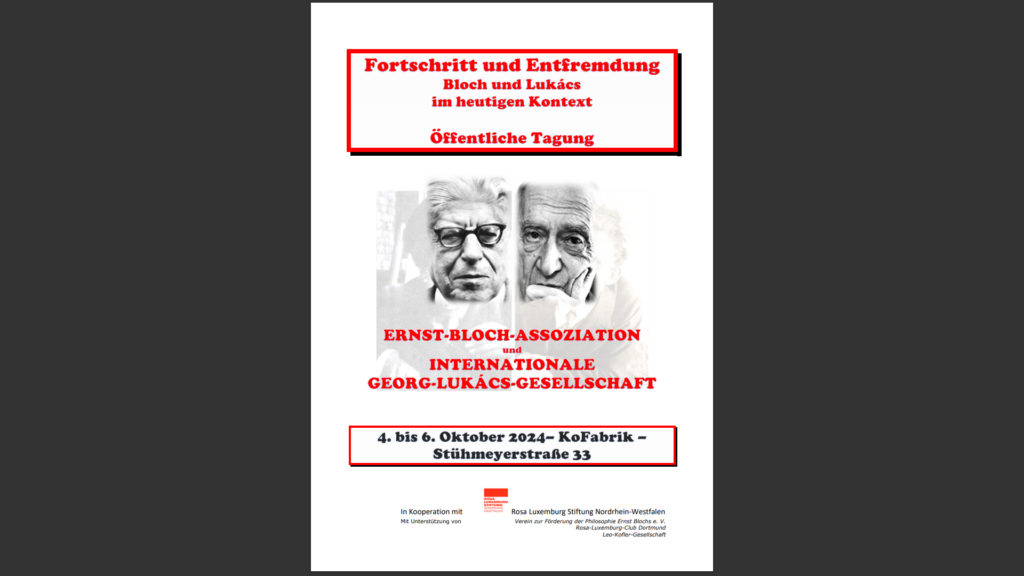
· Donnerstag, 23. Mai 2024, 19:00 bis 21:00, Helle Panke e.V. – Rosa-Luxemburg-Stiftung Berlin, Kopenhagener Str. 9, 10437
Leibniz-Zentrum für Literatur- und Kulturforschung, Berlin
100 Jahre Lenin: Lenin bei Lukács und bei Bogdanov
Mit Luise Meier und Rüdiger Dannemann
VIELFALT SOZIALISTISCHEN DENKENS
Für Gerhard Stapelfeldt und nicht wenige andere Linke ist Lenin heute ein (ökonomistischer) marxistischer Dogmatiker, der „nicht nur zum Robespierre der proletarischen Revolution, sondern auch zum Wegbereiter“ Stalins wurde. Wie kommt es dann, dass sich Georg Lukács, dessen Werk „Geschichte und Klassenbewusstsein“ für den Westlichen Marxismus und auch die Kritische Theorie einlussreich wurde, ganz anders als die führenden Köpfe dieser Kritischen Theorie ein Leben lang für Lenin interessiert hat, ihn gar für den bedeutendsten Marxisten des 20. Jahrhunderts hielt?Anlässlich des 100. Todestags sowie der 100-jährigen Wiederkehr von Lukács‘ intellektuellem Porträt des russischen Revolutionärs, das unter dem schlichten Titel „Lenin“ 1924 kurz nach Lenins Tod erschien, lohnt sich der Blick auf das sehr eigenwillige Lenin-Bild des ungarischen Philosophen. Seine kleine Lenin-Studie wurde von August Thalheimer als „überflüssiges Buch“ kritisiert, von Karl Korsch nachdrücklich verteidigt. Im Vortrag geht Rüdiger Dannemann der Frage nach, welche Stärken Lukács an Person und Werk des „Volkstribunen“ und Meisters „revolutionärer Realpolitik“ ausmacht – in den zwanziger Jahren und darüber hinaus bis hin zur erst postum publizierten Demokratisierungsschrift. Das kann ein Beitrag dazu sein, mit Lukács „Lenin neu zu entdecken“ (Michael Brie), aber auch anhand seiner Lenin-Rezeption Lukács‘ eigene philosophische und politische Position genauer zu bestimmen. Luise Meier wird Lenin mit einer anderen großen Figur der damaligen Zeit konfrontieren: Aleksandr Bogdanov. Über hundert Jahre lang wurde der Bolschewist, Arzt, Science-Fiction-Autor, Philosoph, Protokybernetiker und Mitbegründer des Proletkult Alexander Bogdanov vor allem als Gegenspieler Lenins wahrgenommen. Er unterlag als solcher mehrfach in den Kämpfen um die SDAPR bzw. die Bolschewiki und um die Kultur-, Bildungs-, Wissenschafts- und Wirtschaftspolitik der frühen Sowjetunion. Bogdanov wurde nicht nur 1909 auf Lenins Betreiben hin aus der Partei ausgeschlossen und nach 1917 zunehmend isoliert, seine Ideen wurden auch, wo sie von anderen Freunden und Weggefährten Lenins und Bogdanovs aufgegriffen und weiterentwickelt wurden, bekämpft (u.a. von Lunatscharski und Bukharin).
https://www.helle-panke.de/de/topic/3.termine.html?id=3643

Jetzt ist die Lukács-Nummer der Zeitschrift Dissonância (Campinas, São Paulo) erschienen, mit Studien und Intervews (Anita Chari, Rüdiger Dannemann, Ágnes Erdélyi, Andrew Feenberg, Antonino Infranca, Konstantinos Kavoulakos, Michael Löwy, Michael J. Thompson, Miguel Vedda)
Hg. von Mariana Teixeira, Victor Strazzeri
Dissonância: Revista de Teoria Crítica (unicamp.br)

Impressionen von Max Emunds, Universität Jena
Samstag, 9. März 2024
Lieber Herr Dannemann,
wie versprochen schicke ich Ihnen in dieser Mail meine lose in Berichtsform gegossenen Eindrücke vom Lukács-Archiv. Ich möchte mich außerdem nochmal für Ihre Vermittlung des Kontakts zu Herrn Mesterházi bedanken, den ich Budapest treffen konnte.
Durch Sie und Herrn Mesterházi war ich ja auf den Zustand, in dem sich die ehemaligen Räumlichkeiten des Archivs mittlerweile befinden, vorbereitet worden, aber als jemand, der die Ereignisse rund um die Schließung 2016 nur durch die nachträgliche Lektüre von Artikeln kennt und der überdies auch die Blüte des Archivs nicht hat miterleben können, als ein in dieser Hinsicht also verspäteter Lukács-Jünger wird man durch einen bevorstehenden Besuch in Lukács ehemaliger Wohnung trotzdem euphorisiert. Und weil man ja durch ein wirklich beachtliches Treppenhaus (nach Meinung von Herrn Mesterházi das Schönste von ganz Budapest) bis zur Wohnungstür steigt, hält sich diese Euphorie tatsächlich auch ungefähr so lange. Dann stellt sich allerdings sehr schnell, wenn man in der Diele der Wohnung steht und seine Jacke aufhängt, das erste Mal Ernüchterung ein. Schon nach kurzer Zeit kommt man auf den Gedanken, dass die Wohnung absichtlich in einen Zustand versetzt wurde, der jeden noch so> interessierten Besucher mit der stillen, unausgesprochenen Frage> konfrontiert: „Was willst du hier?“ Das, was die Akademie in den> ehemaligen Räumlichkeiten des Archivs übriggelassen hat, erweckt den Eindruck – und es soll ganz sicher auch diesen Eindruck erwecken –, als wäre Lukács der Besitzer einer umfangreichen literarischen, philosophischen, historiographischen Bibliothek gewesen, weiter aber nichts. Klar, man wird ins ehemalige Arbeitszimmer geführt. Der Raum ist aber auch etwas wie ein Abstelllager geworden, hier steht ein viel zu> großes, arg ramponiertes Sofa wahrscheinlich nur deshalb herum, weil man es nur mit erheblichem Aufwand aus dem 5. Stock hätte abtransportieren können. Immerhin erinnert hier noch ein Schreibtisch daran, dass hier mal gearbeitet wurde, allerdings sind säuberlich alle Spuren getilgt worden, die daran erinnern könnten, dass das die längste Zeit eben durch das Archiv und nicht durch Lukács selbst geschah.
Die ganze Einrichtung macht eher den Eindruck, als sei man zu spät zu einer Haushaltsauflösung gekommen und könne nur noch die mickrigen> Reste, die wirklich keiner haben wollte, begutachten. Im zentralen Wohnzimmer müssen Lukács‘ Goethe-Werkausgaben (immerhin: in doppelter Ausführung vorhanden!) mit traurig herumliegenden Kabeln und den ramponierten Überbleibseln weggeschaffter Arbeitsplätze um die Aufmerksamkeit des Besuchers wetteifern. In einem kleinen Raum mit Balkon zur Donau hat sich ein Plakat an der Wand erhalten, das einige Karikaturen von Lukács versammelt. Es mag Zufall sein, dass genau dieses Stück die Räumung überlebt hat, aber es mutet doch perfide an: hier blicken nun Lukács grotesk verzerrte Köpfe auf eine Reihe von Wandschränken, die, nach Auskunft von Herrn Mesterházi, einst den handschriftlichen Nachlass von Lukács, eine ganz schön umfangreiche Manuskript- und Typoskriptsammlung also, beherbergten. Immerhin: im Wohnzimmer bekommt man (ob das immer so ist, weiß ich natürlich nicht, aber bei meinem Besuch jedenfalls war es so) eine kleine, erlesene Auswahl aus Lukács‘ Bücherbestand präsentiert. Natürlich die Erstausgabe der Theorie des Romans, natürlich die Erstausgabe von Geschichte und Klassenbewusstsein, sowie noch verschiedene Bücher mit persönlichen Grußworten an Lukács, darunter so namhafte Schinken wie Merleau-Pontys Philosophie der Wahrnehmung. „Für Georg Lukács“, handschriftlich signiert, das macht natürlich Eindruck. Oder in Lukács Faust-Ausgabe: Marginalien von ihm selbst! Zusammen mit dem Gesamteindruck der Wohnung bewirken diese wenigen> Raritäten aber eher eine gesteigerte Aufmerksamkeit des Besuchers für alles, was man hier nicht zu Gesicht bekommt.
Der einzige, echte Lichtblick beim Besuch ist der: die Möglichkeit, Herrn Mesterházi als kundigen Führer durch die ehemaligen> Räumlichkeiten begleiten zu dürfen und sich von ihm etwas über die Geschichte des Archivs belehren zu lassen. Für mich war der Besuch also dennoch ein Gewinn. Die Wohnung aber ist wirklich in einem nicht anders als jämmerlich zu bezeichnenden Zustand. Und die Kirsche auf der Sahnetorte: wenn man sie wieder verlässt, verschließt der Mitarbeiter der Akademie die Eingangstür mit gleich zwei Sicherheitsschlössern – man schaut ihm dabei zu und denkt sich unweigerlich: „Wozu? Es ist doch eh fast nichts mehr da.“
> Beste Grüße,
> Max Emunds
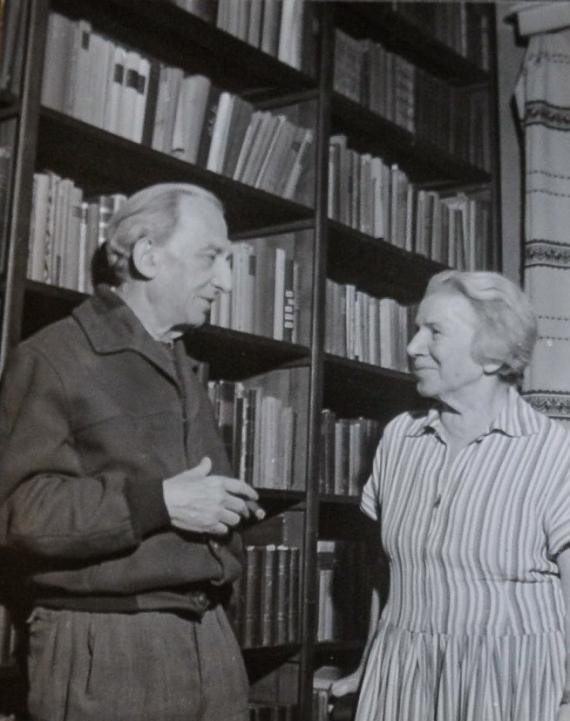
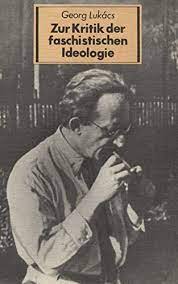
Allen Freundinnen und Freunden des Werks von Georg Lukács,
allen, die sich im Jubiläumsjahr von „Geschichte und Klassenbewußtsein“ für unsere Arbeit interessiert haben und weiterhin interessieren,
wünschen wir erfreuliche Festtage und einen angenehmen Rutsch in ein besseres, friedlicheres, für die Linke politisch weniger katastrophales neues Jahr. 2024 ist euere Unterstützung mehr denn je gefragt!
Bleibt gesund, engagiert und kämpferisch!
Rüdiger Dannemann
(Vorsitzender der IGLG)
Dear friends of the IGLG, dear colleagues, dear comrades,
To all those who have taken an interest in our work in the anniversary year of „History and Class Consciousness“ and continue to do so,
We wish you a happy festive season and a pleasant start to a better, more peaceful and politically less disastrous new year for the left. Your support is needed more than ever in 2024!
Stay healthy, committed and combative!
Rüdiger Dannemann
(President of the IGLG)
Queridos amigos del IGLG, queridos colegas, queridos camaradas,
A todos los que se han interesado por nuestro trabajo en el año del aniversario de „Historia y conciencia de clase“ y siguen haciéndolo,
les deseamos unas felices fiestas y un buen comienzo de un año nuevo mejor, más pacífico y políticamente menos desastroso para la izquierda. ¡Su apoyo es más necesario que nunca en 2024!
¡Mantente sano, comprometido y combative!
Rüdiger Dannemann
Presidente del IGLG
致格奥尔格-卢卡奇的所有朋友
致所有在 „历史与阶级意识 „周年纪念之际关心我们的工作并将继续这样做的人们、
我们祝你们节日快乐,并祝愿左翼在新的一年里有一个更好、更和平、政治灾难更少的愉快开端。2024 年比以往任何时候都更需要你们的支持!
保持健康、坚定和斗志!
IGLG 主席

Simply donate via PayPal (r.dannemann@lukacs-gesellschaft.de).
© 2025 lukacs-gesellschaft.de
Theme von Anders Norén — Hoch ↑
Neueste Kommentare